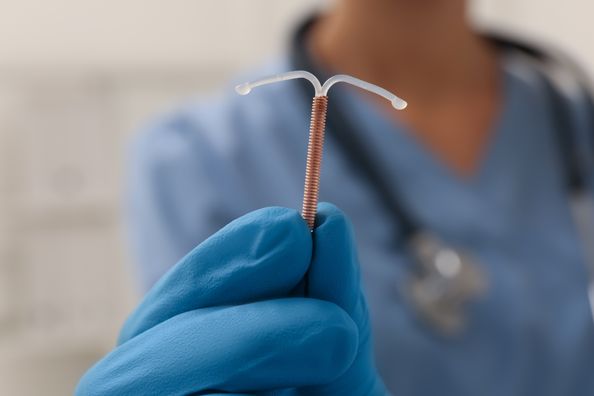Contraception, or birth control, is used to prevent pregnancy. Many factors lead to starting birth control. Whether it is to prevent pregnancy temporarily, prevent pregnancy permanently, or to control symptoms related to periods. Regardless of the reason for starting birth control, almost all patients use contraception at some point and there are many options to choose from.
This can make deciding between the many options for birth control overwhelming at first. The good news is, with so many options, there is bound to be one that is right for you! How well birth control works (the efficacy) and how well it fits your lifestyle and overall health are important factors to consider.
Here is what you need to know about some of the most commonly used methods:
Note: “Success rate with perfect use” is the effectiveness of the method if used correctly, 100% of the time. “Success rate with typical use” reflects how the average person actually uses the method — which can be incorrect or inconsistent.
Oral Contraceptives (“The Pill”)
Birth control pills contain hormones that prevent pregnancy by preventing ovulation which is the release of an egg from the ovary. The most common form of birth control pill is the combination pill, which contains both estrogen and progestin. Some oral contraception pills contain only progestin.

Why You Might Like the Pill
Birth control pills are among the most effective forms of contraception and they are generally safe. In addition to helping to prevent pregnancy by controlling hormone levels, they may reduce other symptoms related to periods:
- Acne
- Menstrual cramps
- Heavy bleeding
- PMS or PMDD
- Menstrual migraines
- Ovarian cysts
- Risk of uterine or ovarian cancer
Also read: Why Is My Period So Painful?
Why the Pill Might Not Be Right For You
For the pill to be effective, it should be taken at the same time every day — which can be difficult for patients with busy lifestyles. Additionally, if you are a smoker or are on certain medications, such as some medications used to prevent seizures or treat HIV, you should avoid oral contraceptives. People who can’t take estrogen, such as those who have breast cancer, high blood pressure, a history of blood clots, or who just delivered a baby, shouldn’t take the combination pill but may be able to take a pill containing progesterone-only.
Schedule an appointment with a Duly Health and Care OBGYN to learn about the best options for contraception.
Birth Control Implant (Nexplanon)
The Nexplanon is a small implant that goes under the skin of the arm. The implant is made of a flexible plastic and is roughly the size of a matchstick. The Nexplanon is the most effective reversible form of contraception.
Why You Might Like the Birth Control Implant
The Nexplanon doesn’t require remembering to do something every day or even every week or month. It is effective for up to three years of use. The Nexplanon also does not require a pelvic exam to insert.
Why the Birth Control Implant Might Not Be Right For You
The Nexplanon is a safe form of birth control for almost everyone. While it can help make periods lighter, it may cause some irregular bleeding.
Intrauterine Device (IUD)
An IUD is a small T‑shaped device that goes into your uterus. Copper IUDs change how sperm cells move and stops them from getting to an egg. Hormonal IUDs release a small dose of progestin into the uterus to thin the uterine lining and increase cervical mucous to prevent sperm from entering the uterus.

Why You Might Like an IUD
Once an IUD is placed in the correct position in the uterus it is effective for preventing pregnancy for anywhere from 3 to 10 years depending on the type. So, unless the IUD is removed or there is an uncommon issue, like the IUD shifting out of place, you don’t have to worry about it again for a while. The hormonal IUDs can lighten or even stop your period altogether, they also tend to lessen cramping with periods.
Copper IUDs can be used as an emergency form of contraception (similar to a plan B pill) as long as they are placed within 72 hours of contraception failure or unprotected intercourse.
Why an IUD Might Not be Right For You
The IUD insertion requires a pelvic exam and may not be the best option if you have never had a pelvic exam or have discomfort with exams. The insertion can be uncomfortable and may cause a short-term increase in bleeding or cramping. However, most patients do very well with the procedure using only over-the-counter pain medications. It also helps to have your doctor walk you through the procedure so you know what to expect.
Copper IUDs can cause cramping or heavier periods.
You should not get an IUD if you:
- Have a pelvic infection
- Have a structural variation that distorts your uterus (like a uterine septum)
- Are pregnant
- Are allergic to copper or have Wilson disease (for the copper IUD)
Also read: 7 Tips to Feel Less Awkward at an OBGYN Appointment
Permanent Contraception (Tubal Ligation or Vasectomy)
The female sterilization procedure is tubal ligation, or “getting your tubes tied.” This is when the fallopian tubes (the tubes that carry eggs to the uterus) are closed, tied, or removed. Male sterilization is a vasectomy, which involves cutting and sealing the vas deferens (tubes that carry sperm from the testes). Both procedures stop eggs and sperm from meeting.

Why You Might Like Permanent Contraception
If you know for a fact that you do not want to get pregnant in the future, permanent contraception means you never have to worry about it again.
Both female and male sterilization can be performed as outpatient procedures, meaning you can go home the same day. Female sterilization requires general anesthesia while male sterilization can be done under local anesthesia. Both procedures have short recovery periods and are generally considered safe procedures.
Why Permanent Contraception Might Not be Right For You
Both female and male sterilization should always be considered permanent sterilization which means they should only be done if you are certain you do not wish to become pregnant in the future. In addition, some patients have other medical conditions that increase the risks related to surgery. In these cases, other forms of contraception (such as the Nexplanon and IUDs discussed earlier) may be safer options and recommended over permanent sterilization.
Also read: Menstrual Cycle Tracking
Condoms (External- Male Condoms, Internal — Female Condom or Diaphragm)
Male condoms (external condoms) are a type of barrier method, which is a type of birth control that blocks sperm from reaching the egg. These condoms go over the penis and collect sperm. Condoms are the only type of birth control that can protect against sexually transmitted infections (STIs).

Why You Might Like Condoms or Diaphragms
Since condoms can help prevent STIs, they are especially important to use if you or your partner are having sex with more than one person, or have had sex with someone else in the past and have not been tested for STIs. If you are looking for a barrier method, male condoms are usually easy to obtain. You don’t need a prescription for them and they are widely available. While there are other barrier methods of birth control, such as female condoms, diaphragms, sponges, or spermicides, they are not as effective or convenient. For example, a diaphragm needs to be fitted by a provider, while a sponge needs to be left in the vagina for at least 6 hours after having sex.
Why You Might Not Like Condoms or Diaphragms
Even though it’s usually convenient to get condoms, they aren’t always convenient to use. If you’re in the heat of the moment or forgot to restock, you might not have one available when you need it.
The majority of male condoms on the market are made with latex, so they can be a bit tricky if you or your partner have a latex allergy. There are latex-free condoms, but you have to be a little more careful about choosing which one to use. For instance, condoms made of polyurethane (thin plastic) don’t fit as tightly, so you’re at a higher risk of them slipping off. Condoms made of lambskin are effective for birth control, but they aren’t as good at preventing STIs.
Remember that no method other than abstinence (not having sex) is 100% effective at protecting against pregnancy. Some patients even decide to use more than one method for better protection.
Choosing which type of contraception to use can sometimes be confusing, and the first one you try might not be the best one. If you can’t decide, reach out to your provider so they can help you choose the one that’s right for you.
Schedule a Birth Control Appointment
Health Topics:








